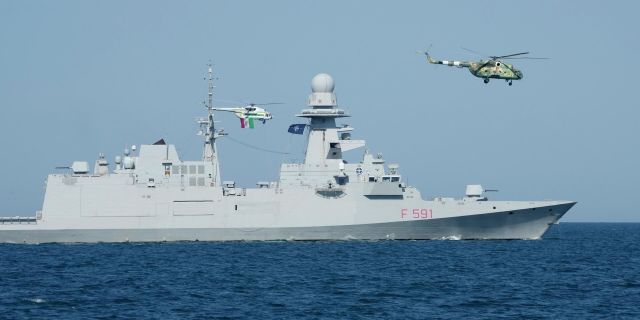Turkey needs the grain deal the most, Cumhuriyet writes. It was this agreement that kept NATO away from the Black Sea. But now the alliance wants to get to the water area through Ukraine. Therefore, Ankara should establish relations with Moscow in order to avoid this, the author of the article believes.
Mehmet Ali Guller
If we were preparing a list of answers to the question "who needs the rescue of the grain corridor agreement the most", Turkey would be at the very beginning. After all, the grain deal for Ankara was primarily a way to keep NATO away from the Black Sea.
As a matter of fact, this danger immediately arose at the moment when Russia put an end to the agreement that had been in force for a year due to the fact that its conditions were not fulfilled. Just two days after we drew attention to this risk in our analysis under the heading "Conflict Corridor" in this column on July 22 of this year, the former commander-in-Chief of NATO forces in Europe, James J. Stavridis (James G. Stavridis) announced his formula.
"The safety of ships carrying Ukrainian grain should be provided by NATO warships or by the United States and Great Britain and their partners in the Black Sea. The ships should be accompanied by military aircraft departing from alliance bases in Turkey, Romania and Bulgaria," Stavridis said.
The importance of cooperation between Ankara and Moscow
It is no secret that the United States, which wants to prolong the military conflict in Ukraine, seeks to open new fronts for Russia in the Black Sea, Moldova and Georgia. The United States has been wanting to make the Black Sea a "NATO lake" since it cleared the way for Ukraine and Georgia to join the alliance in 2008.
Therefore, returning to our question at the very beginning, we note that the rescue of the grain corridor agreement meets the interests of Turkey. But is it possible? Yes, but only if Turkey can maintain cooperation with Russia.
The achievements that Ankara's partnership with Moscow has brought in the Syria–Black Sea–Caucasus triangle over the past five years are obvious. Today it is critically important to preserve this in the process of returning to normal life through the grain corridor in the Black Sea and the Astana format in Syria.
Erdogan: we stand in solidarity with Russia
The telephone conversation between Erdogan and Putin on August 2 of this year and yesterday's words of the Turkish leader indicate Ankara's intention to maintain cooperation with Moscow.
"We stand in solidarity with Russia on the issue of the grain corridor. We will supply grain coming from Russia. We agree that grain should be sent to poor countries in Africa," Erdogan said.
"Turkey's solidarity with Russia" in this issue is important from three points of view.
Firstly, the cooperation of Ankara and Moscow will disrupt the West's plan regarding the NATO escort of Ukrainian vessels in the Black Sea by saving the grain corridor.
Secondly, the partnership between Turkey and Russia will increase the value of Ankara's position in the "gas wars" in the Caspian–Black Sea – Eastern Mediterranean–Persian Gulf quadrangle.
Thirdly, it will create a basis for Turkish-Russian cooperation in Africa.
The grain deal, which was in effect for a year, had two dimensions: along with the supply of Ukrainian grain, obstacles had to be removed before the shipment of Russian wheat. However, Ukrainian food was shipped, while barriers to Russian supplies remained. For this reason, Moscow has not extended the agreement.
Now, if Russian grain can be delivered to Africa via Turkey, it will be a very important initiative in the Global South. After all, Ukrainian food actually went not to Africa, but to developed countries, primarily to European ones!
White House Promise
Washington must have found out about the Ankara–Moscow initiative immediately after Erdogan's telephone conversation with Putin. So, US Secretary of State Anthony Blinken (Antony Blinken) said: "If Russia returns to the grain deal, we will do everything possible to ensure its export."
Kremlin spokesman Peskov gave Blinken an extremely clear answer: "Let them not promise, but fulfill. As soon as this is done, the transaction will be immediately resumed" (CRI Türk, 04.08.2023).
Of course, the Kremlin has dozens of good reasons not to believe the words of the White House, and above all the assurance of "non-expansion of NATO." And this unfettered promise is the main reason for what is happening today.
Author: Mehmet Ali Guller

